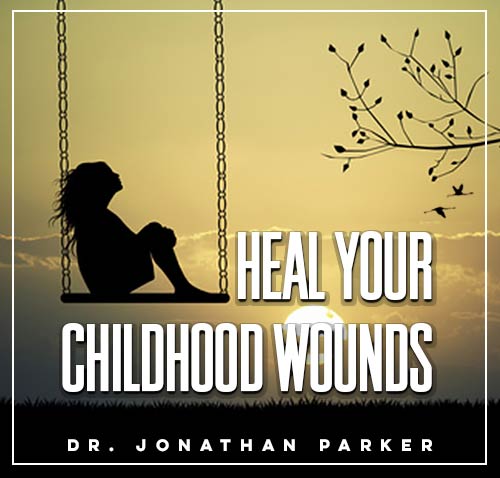Therapy for Childhood Trauma

Before diving in, please note: This post is for informational purposes only. If you’d like to know more about how we approach topics, feel free to check out our friendly Disclaimer Page.
Hey there, amazing readers! 🖐️ Just a quick note: yes, we know there are a lot of ads here. Trust us, we get it—it’s not the prettiest look, but they help us keep this blog alive and kicking. Those pesky little ads cover the costs of all the behind-the-scenes magic, from hosting and tech stuff to creating content we hope you’ll love.
We’re committed to delivering quality posts, and your support (even just sticking around despite the ads) means everything to us. So, bear with us, and thanks for helping us keep the good vibes rolling. Now, on to the fun stuff! 😉
TRANSLATE BUTTON AT THE END OF THE ARTICLE
Understanding Childhood Trauma
Childhood trauma refers to any disturbing or distressing event that occurs during a person’s formative years, typically before the age of 18.
These experiences can range from physical, emotional, or sexual abuse to neglect, witnessing violence, or the sudden loss of a loved one.
Childhood trauma can have a profound impact on a person’s mental, emotional, and physical well-being, shaping their beliefs, behaviors, and relationships well into adulthood.
It is crucial to recognize that trauma is not solely dependent on the severity of the event but also on how the individual perceives and processes it.
Impact of Childhood Trauma
The effects of childhood trauma can be long-lasting and pervasive, influencing various aspects of an individual’s life.
It can lead to a range of emotional difficulties such as anxiety, depression, and post-traumatic stress disorder.
Additionally, childhood trauma can affect cognitive functioning, leading to difficulties in concentration, memory, and decision-making.
These experiences may also impact social interactions, causing challenges in forming and maintaining healthy relationships.
Physical health can also be compromised, with trauma survivors being at a higher risk for chronic illnesses such as heart disease and diabetes.
Signs and Symptoms
Recognizing the signs and symptoms of childhood trauma is essential in addressing and treating its effects.
Some common indicators include:
Flashbacks or nightmares related to the traumatic event
Avoidance of people, places, or activities that trigger memories of the trauma
Hypervigilance, irritability, or difficulty concentrating
Feelings of numbness, detachment, or isolation
Self-destructive behaviors such as substance abuse or self-harm
These symptoms can manifest differently in each individual, making it crucial to seek professional help for an accurate diagnosis and tailored treatment approach.
Importance of Therapy
Therapy plays a vital role in helping individuals heal from childhood trauma.
It provides a safe space for survivors to explore their experiences, process their emotions, and develop coping strategies to manage the impact of trauma.
Therapy can help individuals regain a sense of control over their lives, rebuild their self-esteem, and strengthen their resilience.
By addressing the root causes of trauma, therapy can empower individuals to make positive changes in their lives and break free from the cycle of pain and suffering.
Types of Therapeutic Approaches
There are several therapeutic approaches that are effective in treating childhood trauma.
Each approach offers unique techniques and strategies to address the specific needs of trauma survivors.
Some common therapeutic approaches include:
Cognitive Behavioral Therapy
Focuses on changing negative thought patterns and behaviors
Helps individuals challenge and reframe distorted beliefs
Teaches coping skills to manage anxiety and stress
Play Therapy
Utilizes play and creative activities to help children express their emotions
Allows children to process trauma in a non-verbal and safe way
Encourages exploration and healing through play
Eye Movement Desensitization and Reprocessing
Involves bilateral stimulation to process traumatic memories
Discover "SUPERFOODS: The Key to Health and Balance🥗" 🌿🌺
Helps individuals reprocess traumatic experiences in a less distressing way
Facilitates desensitization to triggers associated with trauma
Dialectical Behavior Therapy
Combines cognitive-behavioral techniques with mindfulness practices
Focuses on building emotional regulation and distress tolerance
Helps individuals develop skills to cope with intense emotions
Trauma-Focused Cognitive Behavioral Therapy
Specifically designed to address trauma-related symptoms in children and adolescents
Employs evidence-based techniques to help individuals process and cope with trauma
Involves both the child and their caregivers in the healing process
Seeking Professional Help
When it comes to seeking therapy for childhood trauma, it is advisable to consult with a licensed mental health professional who specializes in trauma-informed care.
These professionals have the expertise and experience to navigate the complexities of childhood trauma and provide tailored interventions that promote healing and recovery.
Whether you choose individual therapy, group therapy, or a combination of both, finding the right therapist who understands your unique needs is crucial in the healing process.
Healing and Recovery Process
The healing and recovery process from childhood trauma is a journey that requires patience, self-compassion, and dedication.
It is not merely about overcoming the past but also about building a brighter future.
Through therapy, individuals can learn to unravel the impact of trauma on their lives, unlock the secrets of their pain, and cultivate resilience and hope.
Healing from childhood trauma is a gradual process that involves acknowledging the past, embracing the present, and shaping a more empowered future.
With the right support and guidance, individuals can reclaim their lives and thrive beyond their traumatic experiences.
Conclusion
In conclusion, therapy for childhood trauma is a crucial step towards healing and recovery.
By understanding the impact of trauma, recognizing the signs and symptoms, and seeking professional help, individuals can embark on a journey of healing and transformation.
Different therapeutic approaches offer unique strategies to address trauma-related symptoms and empower individuals to overcome their past.
Through therapy, individuals can unlock the secrets of their pain, rebuild their resilience, and create a future filled with hope and possibility.
Remember, you are not alone, and with the right support, healing from childhood trauma is possible.

The Enlightenment Journey is a remarkable collection of writings authored by a distinguished group of experts in the fields of spirituality, new age, and esoteric knowledge.
This anthology features a diverse assembly of well-experienced authors who bring their profound insights and credible perspectives to the forefront.
Each contributor possesses a wealth of knowledge and wisdom, making them authorities in their respective domains.
Together, they offer readers a transformative journey into the realms of spiritual growth, self-discovery, and esoteric enlightenment.
The Enlightenment Journey is a testament to the collective expertise of these luminaries, providing readers with a rich tapestry of ideas and information to illuminate their spiritual path.
Our Diverse Expertise 🌟
While our primary focus is on spirituality and esotericism, we are equally passionate about exploring a wide range of other topics and niches 🌍📚. Our experienced team is dedicated to delivering high-quality, informative content across various subjects ✨.
To ensure we provide the most accurate and valuable insights, we collaborate with trusted experts in their respective domains 🧑🏫👩🏫. This allows us to offer well-rounded perspectives and knowledge to our readers.
Our blog originally focused on spirituality and metaphysics, but we’ve since expanded to cover a wide range of niches. Don’t worry—we continue to publish a lot of articles on spirituality! Frequently visit our blog to explore our diverse content and stay tuned for more insightful reads.







